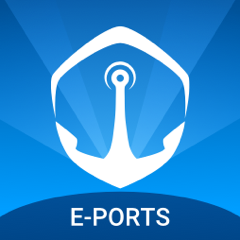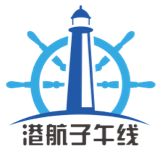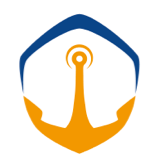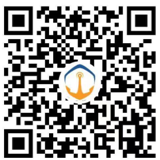Ramadan 2025: How is Alexandria Port Adapting to Seasonal Challenges?2025 年斋月:亚历山大港口现状如何?
The arrival of Ramadan 2025 has brought seasonal challenges to global supply chains and logistics. During Ramadan, many countries adjust working hours due to religious customs, consumer demand surges, and regional energy prices fluctuate frequently. These intertwined factors drive short-term spikes in international logistics costs. To balance religious traditions with commercial efficiency, companies adopt measures such as advanced stockpiling, digital resource scheduling, and policy coordination.
2025 年斋月的到来,给全球供应链与物流行业带来了季节性的严峻挑战。在斋月期间,多国出于宗教习俗调整工作时间,消费需求呈爆发式增长,区域能源价格也频繁波动,这些因素相互交织,推动国际物流成本在短期内大幅上涨。为在宗教传统与商业效率之间找到平衡,企业采取提前备货、运用数字化手段调度资源、开展政策协调等措施应对。
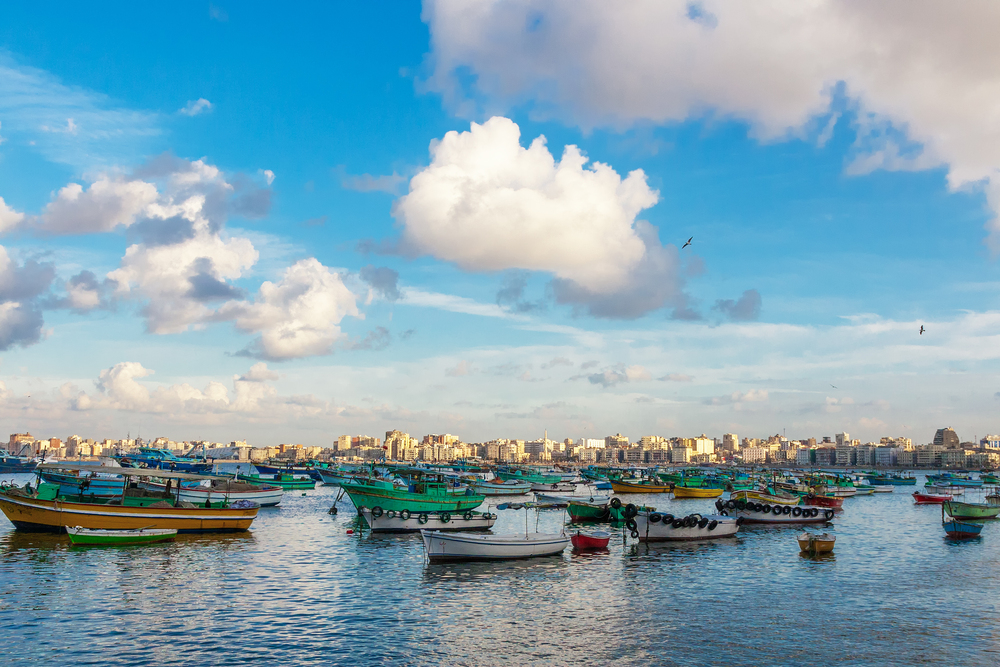
image credit:from Internet
图片源于网络
During this period, major ports in the Middle East, Southeast Asia, and North Africa face significant impacts. Data from international logistics platforms show that cargo handling volumes at Saudi Arabia’s Jeddah Port, Malaysia’s Port Klang, and Egypt’s Alexandria Port surged by 18% year-on-year in the two weeks preceding Ramadan. However, daytime fasting reduces port operating hours by 30-40%, and truck drivers work only before sunrise and after sunset, severely hampering cross-border transport efficiency. The International Federation of Freight Forwarders Associations (FIATA) predicts a 5-8% global logistics cost increase during Ramadan 2025. It advises businesses to complete critical shipments at least six weeks before Ramadan, diversify risks via air, land, and sea routes, use blockchain for real-time cargo tracking, and secure long-term partnerships with regional logistics providers.
在此特殊时期,中东、东南亚及北非地区的主要港口受到显著影响。国际物流平台数据显示,斋月前两周,沙特吉达港、马来西亚巴生港以及埃及亚历山大港等货物处理量同比增长 18%。然而,由于斋月期间人们日间禁食,港口作业时间大幅缩减 30%-40%,加上卡车司机仅在日出前和日落后工作,跨境运输效率严重下滑。国际货运代理协会(FIATA)预计 2025 年斋月期间全球物流成本整体涨幅在 5%-8%,并建议企业至少在斋月前 6 周完成关键商品运输,综合运用空运、陆运和海运分散风险,借助区块链技术实现货物状态数字化实时追踪,与区域物流服务商签订长期合作协议锁定价格。
Ports worldwide face dual pressures of efficiency and costs during Ramadan. As Egypt’s largest port, Alexandria’s operations during this period not only reflect its unique challenges but also highlight common issues faced by regional ports during special times, warranting in-depth analysis.
众多港口在斋月期间都面临着效率与成本的双重考验,而亚历山大港作为埃及最大的港口,其在斋月期间的运营状况,不仅反映出自身发展的特点,也在一定程度上代表了该地区港口在特殊时期面临的共性问题,值得深入剖析。
一、亚历山大港的历史溯源
I. Historical Origins of Alexandria Port
Located on Egypt’s northern coast at the Nile Delta (31°12'N, 29°15'E), 208 km northwest of Cairo, Alexandria Port traces its history to 332 BCE, when it was founded by Alexander the Great. Its strategic location made it a vital trade hub connecting Europe, Asia, and Africa. During the Ptolemaic era, it emerged as a cultural and academic center, home to the famed Library of Alexandria. Under Roman rule, the port thrived as a key supplier of grain and goods. Despite medieval conflicts, it remained a critical node in East-West trade.
亚历山大港位于埃及北部沿海尼罗河口,在阿拉伯湾东岸入海处,濒临地中海东南侧,地理坐标为北纬 31°12',东经 29°15',距离开罗西北 208 千米。其历史可追溯到公元前 332 年,由亚历山大大帝建立。在古代,它凭借得天独厚的地理位置,成为连接欧洲、亚洲和非洲的重要贸易枢纽。托勒密王朝时期,这里是地中海地区的文化和学术中心,著名的亚历山大图书馆坐落于此,吸引了世界各地的学者,对知识传播和文化交流起到重要作用。罗马帝国统治时期,亚历山大港经济进一步繁荣,成为罗马帝国重要的粮食和物资供应港口,港口规模和设施不断扩充。中世纪时,尽管历经战乱和政权更迭,它依然保持一定的贸易活力,是东西方贸易商路上的关键节点。
二、亚历山大港的当代地缘经济意义
II. Alexandria Port’s Contemporary Geoeconomic Significance
The advantageous geographical location of Alexandria enables it to maintain close connections with neighboring countries. It serves as a crucial gateway for trade between Egypt and its surrounding nations, accounting for 65% of Egypt's total import and export trade. Through the Mediterranean Sea, it maintains robust trade relations with various regions in Europe and Asia, making it a vital hub connecting the three continents.
亚历山大港优越的地理位置使其与周边国家联系紧密。它是埃及与周边国家贸易往来的关键通道,进出口贸易占埃及进出口总额的 65%。通过地中海,它与欧洲、亚洲的多个国家和地区保持密切贸易往来,是连接三大洲的重要枢纽。
- 北地中海国家:与希腊、土耳其、塞浦路斯等地中海国家通过贸易航线紧密相连,承担区域能源(如液化天然气)、工业品和农产品的转运。例如,埃及的农产品会通过亚历山大港运往希腊,而希腊的工业制成品也会经此进入埃及市场。
Northern Mediterranean: Alexandria is closely linked through trade routes with Mediterranean nations such as G reece, Turkey, and Cyprus, facilitating the transit of regional energy resources (e.g., liquefied natural gas), industrial goods, and agricultural products. For instance, Egypt's agricultural products are transported to Greece via the Port of Alexandria, while Greece's manufactured goods enter the Egyptian market through the same port.
- 中东与北非:邻近利比亚(西部)和以色列(东部),受地区政治波动影响(如利比亚内战、巴以冲突),成为人道主义物资和区域贸易的中转站。在利比亚内战期间,大量人道主义救援物资通过亚历山大港运往利比亚。
Middle East & North Africa: Adjacent to Libya (to the west) and Israel (to the east), Alexandria is influenced by regional political fluctuations, such as the Libyan civil war and the Israeli-Palestinian conflict, making it a transit hub for humanitarian supplies and regional trade. During the Libyan civil war, a significant amount of humanitarian aid was transported to Libya through the Port of Alexandria.
- 非洲内陆:通过铁路和公路网络连接苏丹、埃塞俄比亚等东非国家,承担其进出口货物的海运门户功能。苏丹的矿产资源通过亚历山大港出口到世界各地,同时,进口的生活物资也经此运往苏丹内陆。
African Interior: Connected by rail and road networks to East African countries such as Sudan and Ethiopia, Alexandria serves as a maritime gateway for their import and export activities. Sudan's mineral resources are exported worldwide through the Port of Alexandria, while imported essential goods are transported inland to Sudan via the same port.
三、亚历山大港的港口特性剖析
III. Analysis of Alexandria Port’s Characteristics
(一)商业运输
(1) Commercial Transport
The Port of Alexandria boasts diverse functionalities, with a particular emphasis on its bulk cargo handling capabilities. The port area encompasses 60 major berths, with a total shoreline length of 10,143 meters, featuring specialized terminals for coal, grain, timber, petroleum, and more. Equipped with comprehensive port facilities, including multiple deep-water berths capable of accommodating large vessels, the port's modern terminals are outfitted with advanced loading and unloading equipment. The floating cranes have a maximum lifting capacity of 200 tons, and the tugboats possess a maximum power of 880 kW, ensuring efficient handling and turnover of various types of cargo. The port also offers extensive storage facilities designed to meet the storage needs of different goods. Primarily handling bulk commodities such as coal, grain, fertilizers, and steel, the port features specialized dry bulk terminals and roll-on/roll-off facilities, complemented by oil and gas terminals that support the export of North African oil and gas resources, such as those from Egypt's Zohr gas field.
亚历山大港功能多样,散货运输能力突出。港区内有 60 个主要码头,岸线总长度达 10143m,设有煤炭、粮食、木材及石油等多种专用码头。拥有完善的港口设施,包括多个深水泊位,可停靠大型船舶,现代化的码头配备先进的装卸设备,浮吊最大起重能力可达 200 吨,拖船最大功率为 880kW,这些设备保障了各类货物能够高效装卸和周转。港口还设有完善的仓储设施,可满足不同货物的储存需求。同时,以煤炭、谷物、化肥、钢铁等大宗散货为主,拥有专业干散货码头和滚装船设施,配套石油和天然气码头,支持北非油气资源出口(如埃及 Zohr 气田)。
(2) Marine Services
As a significant maritime hub, the Port of Alexandria also offers ship repair, maintenance, and servicing. Within the port, specialized shipyards, such as the Alexandria Shipyard, are capable of handling various types of vessel repairs. Additionally, the port provides services like refueling, resupply, and crew changes to ensure the smooth operation of ships. It is equipped with an all-weather pilotage system, offering electronic navigation, weather alerts, and emergency response services, although the modernization level of its technical facilities lags behind that of European ports. However, due to limitations in water depth, the port relies on tugboats to assist in the berthing of large vessels.
(二)海洋服务
亚历山大港作为重要海港,还提供船舶修理、维护和保养等服务。港口内有专业的船舶修理厂(如亚历山大造船厂),能够处理各种船舶的维修工作。同时,提供船舶加油、补给、船员换班等服务,确保船舶正常运营。还配备全天候引航系统,提供电子导航、气象预警和应急响应服务,但技术设备现代化程度落后于欧洲港口。不过,受限于港口水深,需依赖拖轮协助大型船舶靠泊。
四、自然条件对亚历山大港的影响
IV. Impact of Natural Conditions
The Port of Alexandria experiences a subtropical Mediterranean climate, with the highest average annual temperature occurring in July at around 26°C, and the lowest in January at approximately 12°C. During spring and autumn, sandstorms lasting from several hours to five days are common, while winter mornings often bring fog. These adverse weather conditions can negatively impact the safety and efficiency of port operations.
亚历山大港属亚热带地中海式气候,年平均最高气温在 7 月,约为 26℃,最低气温出现在 1 月,约 12℃。春、秋季节常出现持续数小时至 5 天的沙暴天气,冬季清晨多雾,这些恶劣天气对港口作业的安全性和效率产生不利影响。
Draft Depth: The main channel has a maximum depth of approximately 12.5 meters, while the inner harbor berths can accommodate vessels with a draft of up to 8.5 meters. Ships with drafts of 10 to 11 meters are permitted to navigate, but the port cannot accommodate ultra-large container ships (e.g., those exceeding 20,000 TEU), which must be diverted to deep-water ports via the Suez Canal.
Tidal Range: The Mediterranean Sea has minimal tidal variation, with an average tidal range of only 0.3 to 0.5 meters, meaning ship operations are largely unaffected by tides.
Rainy Season: The rainy season spans from November to March, with monthly average rainfall ranging from 50 to 80 millimeters. The annual average rainfall is around 300 mm, primarily concentrated in winter, posing a minor risk to the storage of goods in open yards (e.g., grains). Occasional strong winds in winter (average wind speed of 10 to 15 knots) may cause short-term surges, necessitating temporary suspension of loading and unloading operations.
- 吃水深度:主航道最大水深约 5 米,内港码头可停靠吃水 8.5 米的轮船,允许吃水 10 - 11 米的船舶通行,无法容纳超大型集装箱船(如 20,000 TEU 以上),需通过苏伊士运河的深水港分流。
- 潮差:地中海潮差极小,平均潮差仅 3 - 0.5 米,船舶作业基本不受潮汐影响。
- 雨季:雨季集中在 11 月至次年 3 月,月均降雨量约 50 - 80 毫米,年平均降雨量约 300mm,主要集中在冬季,对露天堆场货物(如谷物)储存构成轻微风险。冬季偶发强风(年均风速 10 - 15 节),可能引发短时浪涌,需暂停装卸。
五、亚历山大港的管理困境
V. Management Challenges
(1) Corruption
Corruption in port management significantly hampers administrative efficiency. For instance, there exists the phenomenon of "grey fees" between customs and port authorities. In one case, a Chinese trading company exporting a batch of electronic products valued at USD 500,000 to Egypt encountered from customs officials during the customs clearance process that if an "acceleration fee" was not paid, the clearance would take a long time. To expedite the customs clearance of their goods, the company reluctantly paid a "acceleration fee" of USD 15,000, which was far higher than the normal customs clearance fee. Some officials' kickbacks amounted to 2-3% of the cargo value. Such behavior increases port operating costs and degrades service quality.
(2) Extortion & Fees
There exist intimidation tactics on the port service side, where relevant parties extort management fees from public docks. Dockworkers and logistics companies have been infiltrated by gang influences, which use intimidation to monopolize truck transportation, warehousing, and other links, thereby raising service prices. One small freight forwarding enterprise refused to pay exorbitant transportation fees to the trucking company controlled by gang forces. As a result, its goods were stranded at the port for several weeks, and during this period, the enterprise received anonymous threatening letters, severely impacting its normal operations.
(3) Inefficiency
The average waiting time for ships to berth reaches 48 to 72 hours (typically less than 24 hours in European ports), and equipment aging, such as a 15% crane failure rate, further exacerbates delays. This not only increases the economic burden on enterprises but also consumes significant time costs, severely damaging the port's image and weakening its competitive advantages in the international port sector.
(一)贪污腐败
港口管理中的贪污腐败现象严重影响管理效率。例如,海关与港务局存在 “灰色费用” 现象。曾经有一家中国的贸易公司,向埃及出口一批价值 50 万美元的电子产品。在清关过程中,海关官员暗示如果不支付 “加速费”,货物清关将需要很长时间。这家公司为了尽快让货物通关,无奈支付了 1.5 万美元的 “加速费”,而正常情况下清关费用远低于这个数额,部分官员抽成比例高达货值的 2 - 3%。这种行为导致港口运营成本增加,服务质量下降。
(二)恐吓行为和管理费用
在港口服务端存在恐吓行为,相关方在公共码头抽取管理费用。码头工人和物流公司被黑帮势力渗透,通过恐吓手段垄断卡车运输、仓储等环节,抬高服务价格。有一家小型货代企业,拒绝向黑帮势力控制的卡车运输公司支付高额的运输费用,结果其货物在港口滞留了数周,期间还收到了匿名的恐吓信,严重影响了企业的正常运营。
(三)管理效率低下
船舶平均等待靠泊时间达 48 - 72 小时(欧洲港口通常低于 24 小时),设备老化(如起重机故障率 15%)进一步加剧延误,这不仅增加了企业的经济负担,还耗费大量时间成本,严重损害港口形象,削弱其在国际港口竞争中的优势。
六、亚历山大港的社会安全隐患
VI. Social Security Risks
(1) Spillover of Regional Conflicts
The influx of refugees from Libya and weapons smuggling through the Port of Alexandria into Egypt has exacerbated local law and order pressures. Tensions between Palestine and Israel have occasionally led to anti-Israel demonstrations near the port, threatening the safety of foreign crew members. For instance, in 2021, the offices of a Greek shipping company were attacked. During an escalation of the Palestine-Israel conflict, a group of radicals affected by the conflict stormed the offices of the Greek shipping company near the Port of Alexandria, causing damage to facilities and injuring several staff members. This incident caused significant losses to the Greek shipping company and raised concerns among other foreign shipping companies about the security situation in the region.
(2) Internal Social Conflicts
Youth unemployment in the Alexandria Governorate exceeds 25%, leading to the formation of slums around the port due to high unemployment rates. Cases of theft and robbery occur frequently, with a cargo theft rate 30% higher than that of European ports. Religious extremist forces operate in the Suez-Alexandria corridor, and there have been incidents of intimidation targeting foreign shipping companies, affecting the normal operation and economic benefits of the port.
(一)区域冲突外溢
利比亚难民和武器走私经亚历山大港流入埃及,加剧本地治安压力;巴以紧张局势导致港口周边偶发反以色列示威,威胁外籍船员安全。例如,2021 年希腊船运公司办事处遭袭事件。当时,巴以冲突升级,在亚历山大港附近,一群激进分子受冲突影响,冲击了希腊船运公司的办事处,造成办事处设施损坏,多名工作人员受伤,给希腊船运公司带来了巨大损失,也让其他外籍航运公司对该地区的安全状况产生担忧。
(二)内部社会矛盾
亚历山大省青年失业率超 25%,高失业率催生港口周边贫民窟,盗窃和抢劫案件频发,货物失窃率较欧洲港口高 30%。宗教极端势力在塞得港 - 亚历山大走廊活动,曾发生针对外国航运公司的恐吓事件,影响港口的正常运营和经济效益。
七、亚历山大港的未来展望
VII. Future Outlook
Despite facing numerous challenges, the Port of Alexandria continues to occupy an important position in the Suez Canal route due to its rich historical background, strategic geographical location, continuously improving infrastructure, and gradually enhanced logistics capabilities. During special circumstances such as heightened security tensions in the Red Sea region, congestion or restricted passage in the Suez Canal, Alexandria becomes one of the key alternative ports for ships to dock. In the future, the Port of Alexandria will need to rely on international capital (such as China's "Belt and Road" port upgrade projects) and technical assistance to drive reforms and enhance its competitiveness.
Certainly, with the advent of Ramadan, FIATA has also provided advice for businesses to cope with the situation. This includes completing the transportation of critical goods at least six weeks before Ramadan, diversifying risks through the combined use of air, land, and sea transportation, leveraging blockchain technology to achieve digital real-time tracking of cargo status, and signing long-term cooperation agreements with regional logistics service providers to lock in prices.
尽管亚历山大港面临诸多挑战,但凭借深厚的历史底蕴、重要的地理位置、不断完善的基础设施以及逐步提升的物流能力,它在苏伊士运河航线中始终占据重要地位,在红海地区安全形势紧张、苏伊士运河拥堵或通行受限等特殊情况下,更是成为替代航线的重要停靠港口之一。未来,亚历山大港需依赖国际资本(如中国 “一带一路” 港口升级项目)和技术援助推动改革,以提升竞争力。
当然,随着斋月的到来,FIATA 也为企业提供了应对建议,包括至少在斋月前 6 周完成关键商品运输,综合运用空运、陆运和海运多种方式分散风险,借助区块链技术实现货物状态的数字化实时追踪,以及与区域物流服务商签订长期合作协议来锁定价格。
E-PORTS also provides comprehensive services for the Port of Alexandria, with key services including provisioning for captains, crew changes, protection agency services, spare parts supply, and emergency services. For information on rerouting to the Port of Alexandria or inquiries about relevant port policies, you can contact us through the following methods:
WhatsApp/WeChat: 13816101982
Email: contact@e-ports.com
E-PORTS也为亚历山大港提供全面服务,重点业务包括船长采购、换员 、保护代理、备件、应急服务等。。若需了解亚历山大港改道信息或咨询相关港口政策,可通过以下方式联系:
WhatsApp/WeChat:13816101982
Email:contact@e - com
